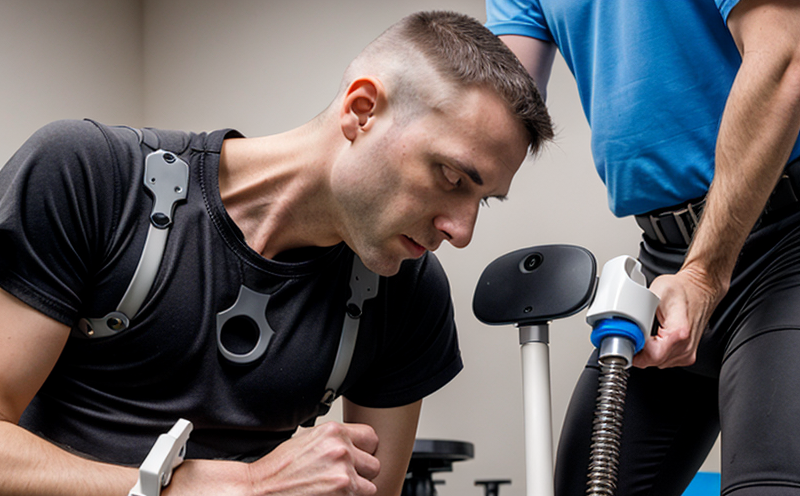EN 10204 Material Traceability Testing for Orthopedic Implants
EN 10204-3:2016 is a critical European standard that specifies the requirements and methods for ensuring material traceability in orthopedic implants. This service is particularly important in the medical device sector, where precision and reliability are paramount to ensure patient safety and compliance with regulatory standards.
The primary goal of this testing procedure is to verify the identity of materials used in manufacturing orthopedic devices such as hip replacements, knee prostheses, and spinal implants. By adhering to EN 10204-3, manufacturers can demonstrate adherence to international quality assurance practices while ensuring that all components are sourced from trusted suppliers.
The testing process involves several key steps: sample preparation, material identification through spectroscopy or other analytical techniques, comparison against supplier-provided certificates, and documentation of results. Compliance with this standard helps mitigate risks associated with counterfeit materials entering the supply chain and ensures that devices meet stringent quality specifications.
Our laboratory uses state-of-the-art equipment to perform these tests accurately and efficiently. Our team consists of experienced professionals who stay up-to-date on all relevant standards and guidelines, ensuring that every test conducted meets or exceeds required levels of accuracy.
To better understand how this service can benefit your organization, let's explore some real-world scenarios:
- Ensuring Supplier Reliability: By providing material traceability reports based on EN 10204-3, you can build trust with your suppliers and ensure they are meeting the highest standards.
- Patient Safety: Accurate identification of materials helps prevent potential adverse reactions or complications due to incorrect component sourcing.
- Regulatory Compliance: Meeting these stringent requirements demonstrates commitment to regulatory bodies like the FDA, EMA, and other national authorities.
In summary, implementing EN 10204-3 material traceability testing is essential for maintaining quality control throughout the manufacturing process of orthopedic implants. It ensures that all materials used are correctly identified and sourced from reliable suppliers, thereby enhancing both product performance and patient safety.
Industry Applications
The application of EN 10204 material traceability testing extends beyond just orthopedic implants; it encompasses a wide range of medical devices where precision is critical. This includes but is not limited to:
- Spinal fusion devices
- Bone plates and screws
- Total joint replacements (hips, knees)
- Artificial joints and limbs
- Dental implants
In addition to orthopedic applications, this testing method can also be applied in other sectors such as:
- Bioabsorbable materials
- Tissue engineering scaffolds
- Biodegradable biomaterials
The versatility of EN 10204-3 makes it an indispensable tool for any company involved in the production or supply chain management of medical devices. By leveraging this standard, manufacturers can ensure consistent quality across all stages of product development and production.
Customer Impact and Satisfaction
The implementation of EN 10204-3 material traceability testing has several direct benefits for customers:
- Increased Confidence: Customers gain confidence knowing that the materials used in their products are accurately identified and sourced from reputable suppliers.
- Better Product Quality: Accurate identification of materials ensures higher quality products, leading to improved customer satisfaction.
- Reduced Risk: By minimizing the risk of using counterfeit or substandard materials, customers reduce potential liability issues associated with defective products.
- Enhanced Reputation: Demonstrating compliance with international standards enhances a company's reputation within the industry and among its clients.
In addition to these tangible benefits, there are also intangible advantages such as fostering long-term relationships with trusted suppliers and contributing positively to public health by promoting safe medical practices.
International Acceptance and Recognition
The acceptance of EN 10204-3 material traceability testing is widespread across numerous countries worldwide. It has been adopted by organizations including:
- The European Union (EU)
- The United States Food and Drug Administration (FDA)
- Medical Device Directive (MDD) Compliance
- International Organization for Standardization (ISO) Standards
Countries like the UK, Germany, France, Italy, Spain, and others have embraced this standard as part of their regulatory frameworks. This global acceptance underscores its importance in ensuring consistent quality across different markets.
Besides governmental bodies, many private institutions also recognize the value of EN 10204-3. For instance:
- Insurance companies may offer favorable terms to organizations that comply with this standard
- Industry associations often recommend or require adherence to such standards for membership eligibility.
The widespread recognition of EN 10204-3 reflects its role in establishing trust and reliability within the medical device industry. As more countries adopt similar regulations, compliance becomes increasingly crucial for maintaining market access and reputation.





